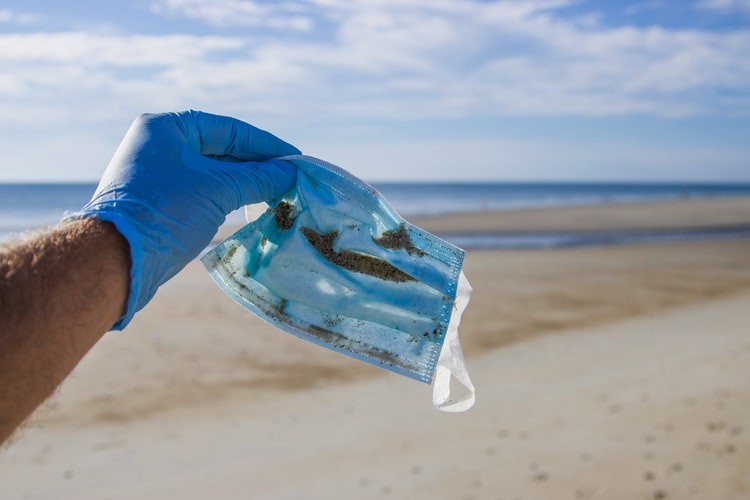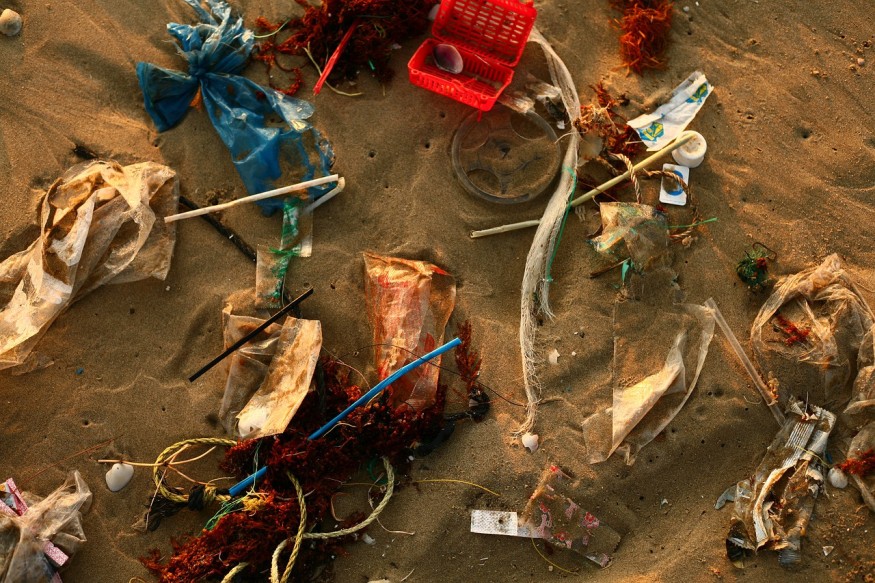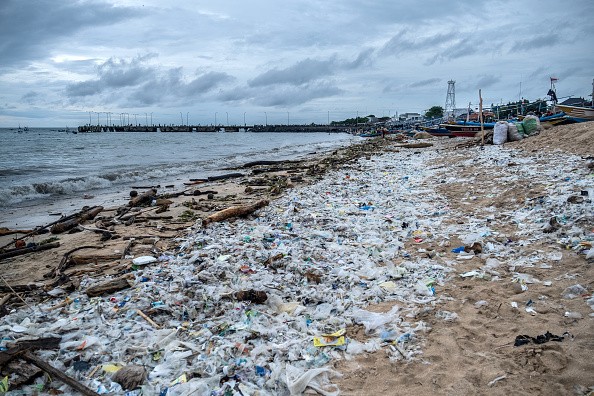Vaccination techniques and variations have received much attention in the wake of the COVID-19 epidemic. However, many other issues caused by the virus went unnoticed, such as plastic pollution. So why is it still necessary to draw attention to some of these other effects?

Until recently, it has been evident that the COVID-19 pandemic has resulted in unanticipated direct and indirect consequences. Plastic items, particularly personal protective equipment (PPE), have proven to be effective in shielding humans against COVID-19.
On the other hand, inadequate plastic waste management has resulted in an alarming buildup of plastic in soil and aquatic habitats.
Plastic Pollution Amidst Covid
In 2020, it was anticipated that 1.56 billion face masks (or 5.66 million tonnes of plastic) would have ended up in the seas. As a result, highlighting sustainable plastic management for a circular economy is essential and vital.
In 2019, nearly 400 Mt of plastic garbage was created globally, according to a report published in Nature Reviews Earth & Environment. However, during the first seven months of the COVID-19 epidemic (December 2019-June 2020), the predicted trash volume exceeded 530 Mt, implying that plastic waste totals in 2020 will be at least double those in 2019. Large pieces of plastic trash (such as masks) can also break down into microplastics (>100 nm and 5 mm) and nanoplastics (100 nm).
Related Article : COVID-19 Collateral Damage? PPE Kills Wildlife; Animals Entangled in Gloves and Masks
Micro & Nanoplastics

The absorption of these micro-/nano-plastics by marine and freshwater creatures, as well as their accumulation in terrestrial plants and animals and transportation in the atmosphere as "plastic-rain" or "plastic-smog," raises worries about the safety of human food, drinking water, and breathing air. Furthermore, micro/nanoplastics can act as vectors for infections and harmful pollutants, resulting in damage and death and having direct deleterious impacts on biodiversity.
Plastic pollution has been identified as a major contributor to climate change. In addition, large volumes of greenhouse gases (i.e., CO2) might be released during production, transportation, and recycling, indicating a significant departure from climate change mitigation.
The researchers gathered statistics on plastic trash creation, assessed possible environmental threats to humans and the ecosystem, and finally identified problems and opportunities based on concerted efforts to manage plastic waste sustainably.
Worsening Plastic Pollution

The COVID-19 epidemic is worsening plastic pollution.To close the plastic loop, a revolution in waste management techniques is required, requiring governments, researchers, and companies to collaborate on intelligent design and sustainable upcycling.
Possible Solutions
Technological advancements are required from the design stage through disposal and environmental recovery to develop a closed-loop plastic civilization. Biodegradable plastics are a potential future technology; however, before they are widely deployed, complete techno-economic and environmental footprint studies for industrial-scale applications are required. Therefore, industries should submit comprehensive biodegradable plastic stream flow data to relevant academics and policymakers to undertake practical techno-socio-economic assessments and formulate policies.
Beyond biodegradable plastics, sophisticated and efficient catalytic conversion methods for plastic waste upcycling provide prospects to increase profitability in both environmental and resource recovery. Therefore, governments should support and use upcycling technology in their waste management initiatives.
For more environmental news, don't forget to follow Nature World News!
© 2026 NatureWorldNews.com All rights reserved. Do not reproduce without permission.





